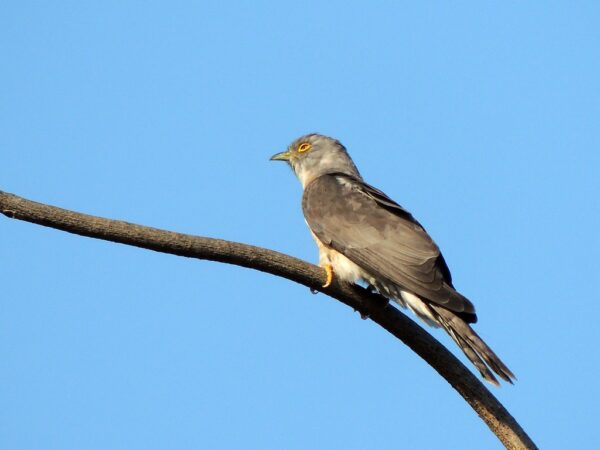Hey bird lovers! As a zookeeper, I’m thrilled to share some fascinating insights about a special day dedicated to one of the most intriguing birds: International Cuckoo Day! Celebrated on April 21st, this day is about raising awareness and appreciation for the fantastic cuckoo bird.
You might be wondering, what makes cuckoos so special? Well, they’re known for their unique nesting habits. Cuckoos are brood parasites, meaning they lay their eggs in the nests of other bird species. When the cuckoo chick hatches, it often pushes the other eggs or chicks out of the nest, leaving the host parents to raise it as their own. Sneaky, right?
International Cuckoo Day is the perfect opportunity to learn more about these fascinating birds and their distinctive behaviors. Zoos, birdwatching clubs, and nature reserves often host events like guided walks, informative talks, and even arts and crafts activities for kids, all centered around cuckoos and their conservation.
Cuckoos play an essential role in their ecosystems, helping to control insect populations. However, many cuckoo species face threats from habitat loss, climate change, and other human activities. International Cuckoo Day is a great way to highlight the importance of protecting these amazing birds and their habitats.
So, please mark your calendar for April 21st and join us in celebrating International Cuckoo Day! Whether you’re a seasoned birdwatcher or just starting to explore the world of avian wonders, this particular day offers a fantastic opportunity to dive into the captivating world of cuckoos and discover what makes them truly extraordinary.
Cuckoo Facts:
- Brood parasitism: Cuckoos are well known for their unique nesting behavior, where they lay their eggs in the nests of other bird species, essentially tricking the host birds into raising their chicks.
- Distinctive call: The male cuckoo has a characteristic two-note call, “cu-ckoo,” which gives the bird its name. The call’s pitch changes as the bird ages, getting higher with age.
- Egg mimicry: Cuckoo birds are known to lay eggs that closely resemble those of their host birds in terms of size, color, and pattern, making it difficult for the host bird to recognize the intruder’s egg.
- Chick behavior: Upon hatching, cuckoo chicks often push the host’s eggs or chicks out of the nest, ensuring they receive all the resources and attention from the host parents.
- Variety of hosts: Cuckoos may parasitize a wide range of bird species, including warblers, flycatchers, and sparrows, depending on the cuckoo species.
- Global distribution: Cuckoo birds are found worldwide, with species inhabiting Europe, Asia, Africa, and Australia.
- Varied diet: Cuckoos have a diverse diet that includes insects, caterpillars, fruit, and seeds. Some species, like the common cuckoo, specialize in feeding on hairy caterpillars, which many other birds avoid due to their irritating hairs.
- Migration: Some cuckoo species, such as the common cuckoo, are migratory, traveling long distances between their breeding and wintering grounds. The common cuckoo migrates from Europe and Asia to Africa during winter.
- Diverse appearance: Cuckoos belong to the family Cuculidae, which includes over 140 species with varied formations. While some cuckoos have a more traditional bird-like appearance, others, like the roadrunners and coucals, have unique forms and adaptations.
- Ecosystem role: Cuckoos play a vital role in their ecosystems, helping to control insect populations and acting as indicators of environmental health.

